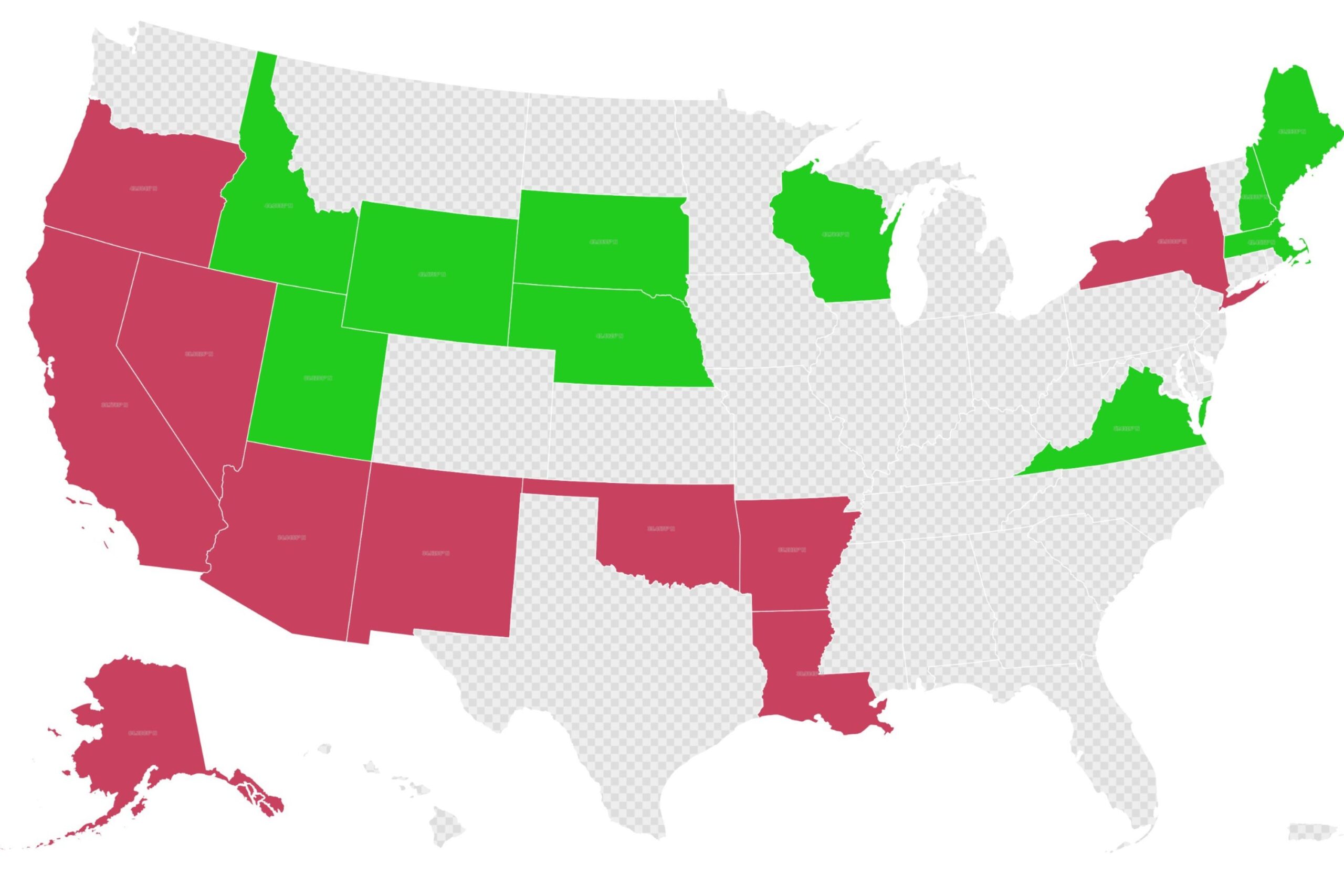Science
Study Reveals Best and Worst U.S. States to Move to in 2025

According to a recent study by ConsumerAffairs, the best states to move to in 2025 are Utah, New Hampshire, and Idaho, while New Mexico, Louisiana, and California rank among the worst. The analysis, which assessed all 50 states based on five crucial metrics—affordability, safety, economy, healthcare and education, and quality of life—provides insights for those considering a relocation.
For the second consecutive year, Utah, New Hampshire, and Idaho occupied the top three positions. These states consistently scored high in areas such as safety and economic stability, making them attractive options for newcomers. Harrison Stevens, Vice President of Marketing at TurboTenant, cautioned that while such rankings can be informative, they may not apply universally. He highlighted New Hampshire’s high ranking overall, yet noted it placed 33rd in affordability, indicating potential challenges for those seeking affordable housing.
New Mexico’s placement at the bottom of the list results from its underperformance in safety, healthcare, and education. Despite offering affordable housing and abundant sunshine, the state’s weaknesses have led to warnings for potential movers. The report advised that individuals considering New Mexico should weigh its attractive aspects against these significant drawbacks.
Factors Influencing State Migration
When contemplating a move within the United States, various factors play a critical role. Jeremy Savory, founder of Millionaire Migrant, indicated that tax incentives are often pivotal in domestic migration patterns. States with lower or zero tax jurisdictions, such as Florida and Texas, have witnessed increased real estate activity as people seek to maximize their financial resources.
Chris Orestis, President of Retirement Genius, echoed this sentiment, noting that financial optimization is a key driver for many individuals, particularly retirees. He pointed out that retirees are increasingly gravitating towards inland states that impose lower taxes, distancing themselves from coastal areas vulnerable to climate change impacts. Orestis emphasized the need for future movers to consider the financial implications of climate-related disasters on their living conditions and health.
In a similar vein, Max Dugan-Knight, a climate data scientist at Deep Sky, warned about the rising dangers associated with extreme weather events. He noted that rising temperatures, hurricanes, and flooding are becoming more frequent and severe, which can significantly affect property values and insurance costs. Dugan-Knight advised potential movers to avoid areas already facing severe climate challenges, stating, “Hot places are going to get hotter,” and emphasizing the mounting risks related to water security.
Top and Bottom States for Relocation
The study identified the following as the top ten best states to move to in 2025:
1. Utah
2. New Hampshire
3. Idaho
4. Virginia
5. South Dakota
6. Maine
7. Nebraska
8. Massachusetts
9. Wisconsin
10. Wyoming
Conversely, the top ten worst states to relocate to include:
1. New Mexico
2. Louisiana
3. California
4. Oregon
5. Arkansas
6. Nevada
7. Oklahoma
8. Alaska
9. Arizona
10. New York
The insights from the ConsumerAffairs study underscore the importance of evaluating multiple factors before making a move. Individuals and families considering relocation should carefully analyze their personal circumstances, including financial priorities and climate risks, to find the best fit for their needs. For a complete ranking of all 50 states, visit the ConsumerAffairs website.
-

 Technology5 months ago
Technology5 months agoDiscover the Top 10 Calorie Counting Apps of 2025
-

 Technology3 weeks ago
Technology3 weeks agoOpenAI to Implement Age Verification for ChatGPT by December 2025
-

 Health3 months ago
Health3 months agoBella Hadid Shares Health Update After Treatment for Lyme Disease
-

 Health3 months ago
Health3 months agoAnalysts Project Stronger Growth for Apple’s iPhone 17 Lineup
-

 Health4 months ago
Health4 months agoErin Bates Shares Recovery Update Following Sepsis Complications
-

 Technology5 months ago
Technology5 months agoDiscover How to Reverse Image Search Using ChatGPT Effortlessly
-

 Technology3 months ago
Technology3 months agoElectric Moto Influencer Surronster Arrested in Tijuana
-

 Technology5 months ago
Technology5 months agoMeta Initiates $60B AI Data Center Expansion, Starting in Ohio
-

 Technology2 months ago
Technology2 months agoDiscover 2025’s Top GPUs for Exceptional 4K Gaming Performance
-

 Technology5 months ago
Technology5 months agoRecovering a Suspended TikTok Account: A Step-by-Step Guide
-

 Health5 months ago
Health5 months agoTested: Rab Firewall Mountain Jacket Survives Harsh Conditions
-

 Lifestyle5 months ago
Lifestyle5 months agoBelton Family Reunites After Daughter Survives Hill Country Floods





















